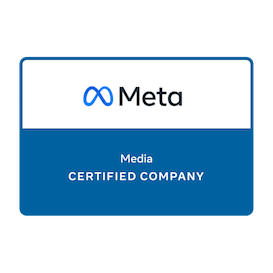The Proposal to Ban TikTok in the U.S. and its Implications on the Marketing World
TikTok, a social media app centered around short-form videos that is currently listed under the App Store’s “iPhone Essentials” category, is facing a proposed ban by the U.S. government. Lawmakers recently introduced a bill that would block and prohibit transactions from “any social media company in, or under the influence of, China, Russia, and several other foreign countries of concern.” The ban has already been approved for government-issued devices, but what could this mean for the more than 1 billion people who use TikTok, and the 140.6 million who reside in the U.S.?
Impact on Influencers
TikTok’s influencers have a higher engagement rate than any other popular social media site. TikTok’s micro-influencers see an engagement rate of 18%, which is significantly greater than Instagram’s micro-influencer engagement rate of 3.86%. With over 50,000 influencers worldwide, banning TikTok in the U.S. would displace thousands of U.S.-based influencers, most likely leading them to lower engagement level social media sites.
If the bill is passed, members of Congress are likely to receive backlash from influencers and other content creators. Luke Lintz, the CEO of HighKey Enterprises, a social media management and digital marketing company, said to Forbes, “Some businesses and personal brands have paid us hundreds of thousands of dollars to build their brands with TikTok-specific videography, daily posting, and growth strategies over the years. With that all disappearing overnight, there will be a lot of outrage.”
Impact on Social Media Marketers
A study by Ad Week revealed that 49% of users on TikTok have purchased an item from a brand that they have seen on their feed. This is largely due to the app being filled with entertaining user-generated content. This content includes everything from the use of brand hashtags and unpaid reviews of products/services to paid sponsorship videos created by influencers. These strategies allow brands to reach larger portions of their target markets while spending less compared to traditional marketing mediums. Since TikTok prioritizes videos based on users’ past engagements, this eliminates additional costs associated with reaching particular segments.
Without TikTok and its algorithm, companies may have to find new influencers to post content for their brands on other social media platforms. This ban could also lead businesses to recreate their marketing plans to include traditional mediums like television and web advertisements. These mediums tend to be more expensive than user-generated content, so in turn, this could lead to an increase in product costs.
Alternative Options
Because of TikTok’s success, many social media sites are developing short-form video segments for their apps to compete with the short-form video giant. Currently, Instagram Reels seems to be TikTok’s most viable competitor with 159.75 million users in the United States alone. Instagram has developed its Reels algorithm to be similar to TikTok’s algorithm, which is promising if the legislation passes.
Looking to expand your company’s presence on social media? Contact the SparkShoppe team today to ignite your strategy!
















